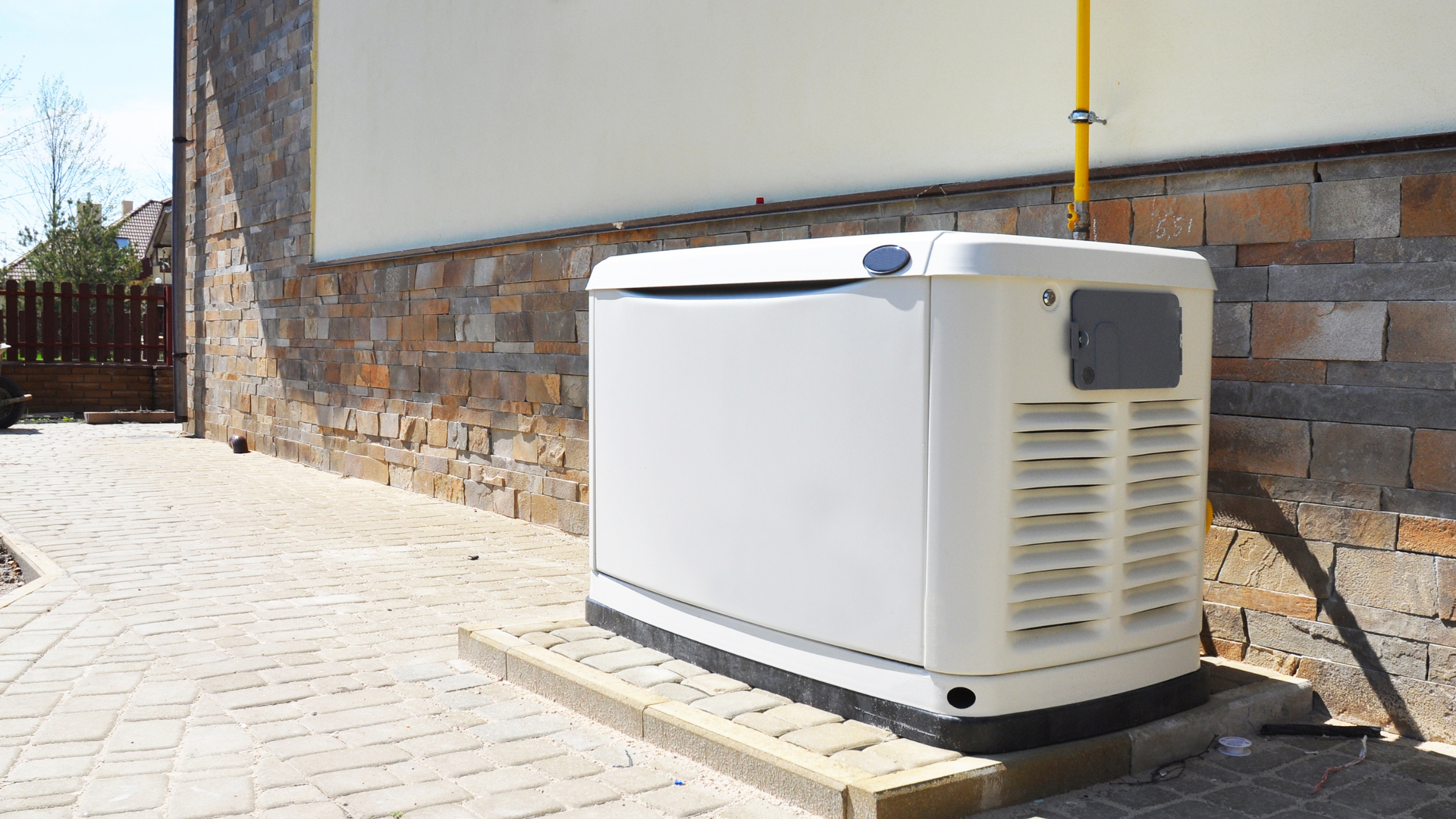Does a standby generator charge itself? It’s an important question to ask, and we’re glad you’re here to find the answer! In this post, we’ll not only answer this question, but we’ll share other helpful information about using a standby generator you won’t want to miss.
As you know, a standby generator is a backup power source that kicks in automatically when the power goes out. This differs from a portable generator, which must be manually started and connected to your home’s wiring.
Does a Standby Generator Charge Itself?
Standby generators are powered by either propane or natural gas. If you’re wondering whether or not your standby generator will charge itself, the answer is technically no—they don’t work that way because they don’t run on batteries.
(Curious about the differences between propane and natural gas? Read this post next to learn more)
When the power goes out, your standby generator will automatically turn on and begin supplying power to your home. The generator will run until the power is restored or you turn it off. If you have a large tank on your generator, it can run for quite a long time, providing you with power when you need it most.
If you have a standby generator, it’s essential to make sure that it’s properly maintained. This includes regularly checking the oil and filter, as well as ensuring that there’s enough fuel in the tank.
Standby Generator FAQs
Now that we’ve got that big question out of the way, let’s go over some other common questions and answers about them you might have.
What is the difference between battery backup systems and generators?
You may come across battery backup systems as you shop for standby generators. These two types of backup power sources work differently.
A standby generator runs on either propane or natural gas and kicks in automatically when the power goes out. On the other hand, a battery backup system uses batteries to store power that can be used when the power goes out.
Do I need a standby generator?
A standby generator is a beneficial investment for most homes. They provide peace of mind and can help to keep your family safe and comfortable during an outage.
If you live in an area prone to power outages, or if you have appliances or devices that require electricity to function, a standby generator is a good option.
(Don’t miss this post next: How to Check for Gas Line Leaks in Your Home)
How do I choose the right standby generator for my home?
When choosing a standby generator, it’s important to consider the size of your home and how much power you’ll need to keep your appliances and devices running during an outage.
You should also consider the fuel type that you prefer. For example, standby generators can be powered by either propane or natural gas.
Can I install a standby generator by myself?
Installing a standby generator is a big job, and it’s best to leave it to the professionals. However, RP Gas Piping can help you choose the right standby generator for your home and install it properly.
Visit this post next to learn more about the importance of getting help for installing your generator and why this isn’t an area where you want to cut corners.
If you have any questions about standby generators, or if you’re ready to purchase one for your home, contact R P Gas Piping — Arizona’s leading gas installation company — today! We would be happy to help you choose the right generator for your needs and provide expert installation services.
Did you learn a lot from this post?
Here are three more to check out next:


